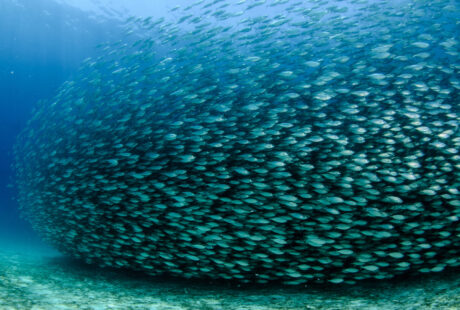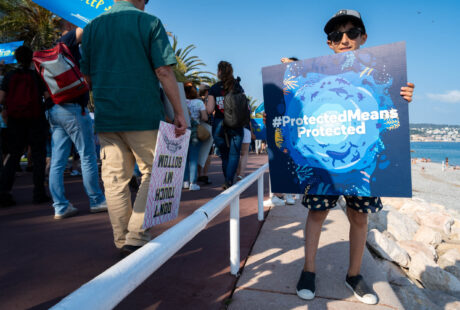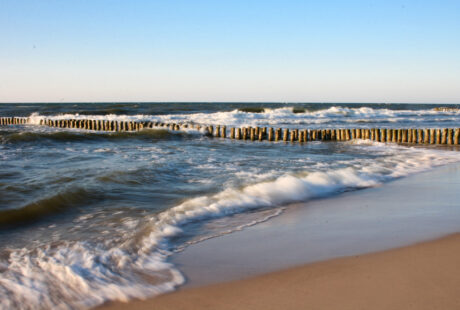Seas At Risk signed the Food Policy Coalition 2024 Election Manifesto calling on the EU to act decisively to tackle the rising issues in our food supply and demand, to create food environments where the healthy, sustainable, and low environmental impact choice is the most available, affordable, and attractive for EU citizens. It is crucial to raise this issue during the 2024 EU election campaign, where more than 400 million citizens across Europe will have an opportunity to elect the new members of the European Parliament and shape the agenda of the EU for the rest of the decade. This election represents one of the last windows of opportunity to turn the tide on the nature and biodiversity crises, on land and at sea, before we reach the 2030 milestone.
The Food Policy Coalition, of which Seas At Risk is part, brings together civil society organisations advocating for a shared vision of European sustainable food systems. The aim of the work is to crystallize an overarching vision on food policies to put the EU on track to meet the UN’s Sustainable Development Goals and the Paris Climate Agreement. In this regard, while often being a blind spot in food policies, the issue of aquatic food systems will be key, as unsustainable fishing and aquaculture practices can lead to detrimental impacts on our climate and biodiversity.
European citizens have long demanded better food, as shown by several successful European Citizens Initiatives, and it is time to heed these calls. The EU must accelerate the shift towards local food systems that respect social and labour rights, protect climate and the environment, provide healthy food for all, and meet high animal welfare standards.
EU subsidies must be used to incentivise local ecological and organic farming and fisheries management, to make healthy, sustainable food more affordable to all, and to ensure generational renewal. In other words, subsidies must be transformed into a tool for just transition. Prioritising the production of food over feed and fuel is key to cutting costly import dependencies, reducing the footprint of our food systems locally and globally, bolstering food security around the world, and building resilience to shocks.
To address today’s mounting challenges, EU institutions must take an innovative approach and tackle the food supply chain at the same time. Until now, the Union has focused on market regulation and producer support, but it must now act decisively on consumption as well. After the elections, the newly elected Members of the European Parliament will have the responsibility to discuss and adopt a strong Sustainable Food Systems framework, which is already due from the current European Commission by the end of 2023. This framework will include minimum sustainability requirements and sustainability labelling, which will be essential to enable the just transition of our food system.
Establishing sustainable aquatic food systems will move us towards a thriving ocean. Working on the whole aquatic food supply chain, from fisheries and aquaculture practices to the labelling of their products, is needed to minimize threats to sensitive species — notably bycatch — and further deterioration of marine ecosystems threatened by unsustainable fishing practices such as bottom trawling. The food policy regulatory framework is a cornerstone to enhance a just transition to low-impact fisheries in Europe and the emergence of possible sustainable alternatives.
Posted on: 4 April 2023



